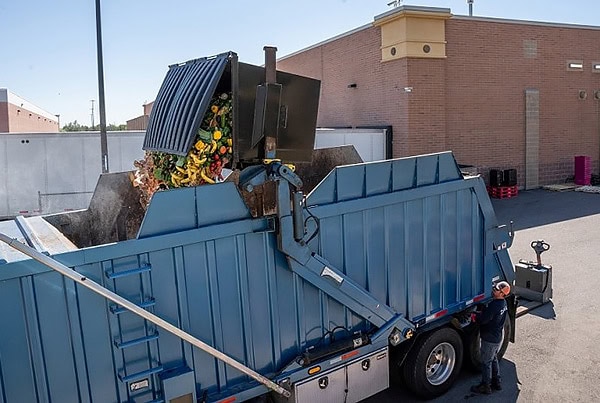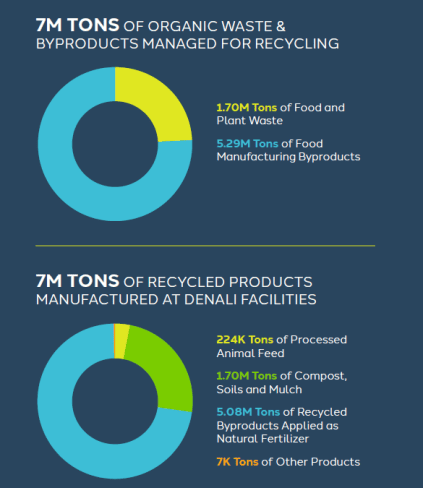Denali’s organic recycling cuts farm costs, emissions across U.S.

Denali, a leading organic recycling company, recently unveiled its third annual sustainability report, marking a milestone of over 10 billion pounds of organic byproducts transformed into natural fertilizers and animal feed since the company’s founding. The 2023 report highlights Denali’s achievements in food waste recycling, a process which, according to U.S. Environmental Protection Agency (EPA) data, has significantly reduced greenhouse gas emissions.
The report reveals that in 2023 alone, Denali processed 1.7 billion pounds of food waste, transforming over 75% of this into organic animal feed or specialized formulations tailored for livestock. This recycling effort produced enough fertilizer to support 100,000 acres of farmland and manufactured sufficient animal feed for approximately 40,000 cattle in five states. By converting 1.3 billion pounds of food waste into animal feed, Denali estimates a reduction of 780,000 metric tons of CO₂e, equivalent to the emissions from over 185,000 gasoline-powered vehicles annually.
According to Denali’s CEO, Todd Mathes, the company’s work in circularity not only supports farmers by reducing their expenses but also aligns with broader environmental goals. Denali’s depackaging process—a key part of this circular model—has proven to be a cost-effective solution, enabling farmers to access fertilizer and animal feed at no cost, effectively saving at least $100 per acre.
The company collaborates with a wide range of partners, including major grocery retailers like Whole Foods Market and Albertson’s, food manufacturers, and public institutions, to collect food waste from 48 states and Puerto Rico. With the introduction of advanced depackaging technology, Denali’s operations automatically separate food from its packaging, ensuring a cleaner organic stream for processing into animal feed, compost, or energy. Denali attributes the expansion of this technology to compliance with U.S. food waste mandates, increasing demand for efficient recycling solutions, and a push toward voluntary zero-waste commitments from retailers.
Denali’s Role in a Circular Economy
Founded in 2014, 
With an extensive network across the U.S., Denali also helps return millions of gallons of water to the environment through its recycling efforts. The company’s leadership views this as a commitment to environmental stewardship, with a focus on future generations.
Expanding Depackaging Technology and Customer Impact
Denali’s depackaging services continue to expand nationwide, enhancing operational efficiency and supporting regulatory compliance for its customers. Benefits of this technology include a reduced frequency of waste compactor pulls, lower contamination risks, and increased labor efficiency. According to the report, customers using Denali’s services have seen an estimated 60% increase in food waste diversion and a 12% reduction in landfill waste.
As Denali scales its depackaging services, the company aims to gather data that will further refine food waste prevention measures and foster a more circular economy. Through targeted innovations, Denali is positioned to play a substantial role in the agricultural industry, driving both environmental and economic advantages.
Enjoyed this story?
Every Monday, our subscribers get their hands on a digest of the most trending agriculture news. You can join them too!














Discussion0 comments